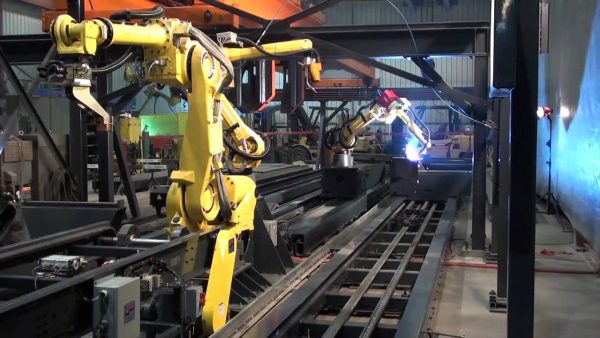Robots may have to eventually be taxed like people after they destroy too many human jobs
03/10/2017 / By Daniel Barker

By the time robots become intelligent enough to rise up and destroy their human creators, we may have given them good reason to do so. There is a growing debate concerning whether or not robots should be taxed, and presumably, robots won’t like that any more than people do.
All joking aside, the idea of taxing robots is gaining support from a number of people, including influential public figures like Bill Gates as well as economic experts, politicians and others who fear the negative effects mass automation will have on the global workforce.
The concern is that automation will replace an ever-increasing share of the workforce, creating an income disparity far greater than the one we are already witnessing. A robot tax might be used to retrain workers or simply provide them with a basic income.
This is not a new concept, of course – ever since there has been automation in the workplace (several centuries now), there has been the fear that workers would be displaced en masse by automated systems.
That has never really happened on a large scale. In fact, automation often creates new jobs in its wake. The Guardian provides an example:
“One recent example is bank tellers: ATMs began to appear in the 1970s, but the total number of tellers has actually grown since then. As ATMs made it cheaper to run a branch, banks opened more branches, leading to more tellers overall. The job description has changed –today’s tellers spend more time selling financial services than dispensing cash – but the jobs are still there.”
But considering recent advances in robotics, there is concern that the equation may be changing at a fundamental level. It is feared by some that robotics may eliminate the need for virtually any human labor at all:
Support our mission and enhance your own self-reliance: The laboratory-verified Organic Emergency Survival Bucket provides certified organic, high-nutrition storable food for emergency preparedness. Completely free of corn syrup, MSG, GMOs and other food toxins. Ultra-clean solution for years of food security. Learn more at the Health Ranger Store.
“While the current rhetoric around artificial intelligence is overhyped, there have been meaningful advances over the past several years. And it’s not inconceivable that much bigger breakthroughs are on the horizon. Instead of merely transforming work, technology might begin to eliminate it. Instead of making it possible to create more wealth with less labor, automation might make it possible to create more wealth without labor.”
Some experts envision a possible dystopian future that sounds as bleak as any sci-fi film plot – a world in which the wealthy elites have completely isolated themselves from the starving masses with the help of sophisticated robotic systems that provide for their every need.
By that point the super-rich will have gained control of not only most of the wealth – as things currently stand – but all of it.
The poor will no longer be useful even as cheap labor, but will still pose a certain risk to the elite class – who will eventually be inclined to exterminate them.
These are rather extreme predictions that may be based more on paranoia than valid reasoning, but the issue of automation and its effects on wealth distribution are worthy of consideration.
And while the robot tax proposal is seen by some as a step towards addressing the concerns, others worry that such a tax would impede innovation and lessen productivity, without necessarily benefiting the work force.
One of the arguments against taxing automation is that it is difficult to tell the difference between “new technology that complements humans and new technology that replaces them,” as a recent Bloomberg piece described it.
Others see the robot tax proposal as propaganda promoting a socialist wealth redistribution scheme.
Are we really in danger of losing what jobs are left due to automation systems and robotics? Is an automation tax a viable scheme for preventing the elites from destroying us all with the help of their robotic minions? Or is it all just part of a grand socialist plot?
Let us know what you think.
Sources:
Tagged Under: automation, employment, Income Inequality, robot tax




















